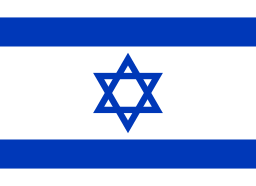
מטלה Coordinates: 33° 16' 44" N 35° 34' 28" E 
|
||

מטלה Coordinates: 33° 16' 44" N 35° 34' 28" E 
|
||
| Home | Maps | Community | The Fallen | Links | Census |
Metula1 is Israel's most northern point, adjacent to the border with Lebanon. The river Nahal Ayoun, with its source in Lebanon, flows into Israel in the vicinity of Metula, supplying water for agricultural purposes. The biblical cities of Dan, Abel Bet Ma'akha, and Eyon are not far away. Archeological remains of an ancient settlement, including wine presses and a mosaic pavement, have been found in the area. Excavations have also revealed a tomb containing several graves that were created from about the third to the sixth centuries. It is known that a Byzantine-era settlement also existed not far from Metula.
A Druze2 village, Metully, existed in the area as early as the start of the nineteenth century, during the Ottoman Era. Near the village was a spring that the Druze used to cultivate a garden. An 1881 Survey of Western Palestine described El Mutallah as “A small village, built of stone, containing about 100 Druzes, situated on slope of hill, near a large stream, surrounded by arable land.”
In 1895 the owner (Jabur Bey of Sidon) of the land in and around Mutallah sold 12,800 dunams (approximately 2,908 acres) to an agent of Baron de Rothschild. About six-hundred Druze tenant farmers had inhabited and cultivated this land but had temporarily abandoned it to participate in the Druze Rebellion, anticipating that when they returned they would pick up their farming where they had left off. However, they had lost their tenancy rights and Rothschild's agent called on the Turkish authorities to establish his land rights. In an attempt to encourage the Druze to leave the land the agent offered them too small an amount, resulting in an eight year period of violence that ended in 1904 with an additional payment of 60,000 francs made by the Jewish Colonization Association.
The land purchased by Baron de Rothschild was used to create a Jewish settlement, Metula, in 1896. Sixty farming families from other settlements, together with twenty families not involved in farming, were the initial settlers. Many of these founders were immigrants from Russia; others were halutzim (pioneers) from Petah Tikva as well as intellectuals from Safed.
The Ottomans, having supported the Central Powers during the First World War, lost its Middle East Territory to the Allies. Initially, Metula was under French control; this ended in 1924 when a border adjustment agreed to by the French and British went into effect.
During the British Mandate in Palestine, there was a Jewish insurgency3 from 1944 to 1947. The Night of the Bridges4 was a Haganah operation carried out on the night of 16 June 1946. Its immediate objective was to suspend British transportation routes by destroying eleven bridges, two of which were near Metula, that linked Palestine to Lebanon, Syria, Transjordan, and Egypt. The strategic aims were to demonstrate the ability of the Haganah, including its skill at sabotage; embarrass the British and weaken British legitimacy.
On 10 March 1985, a convoy of Israel Defense Force troops were traveling from Metula towards the town of Marjayoun in Lebanon. As the Safari trucks crossed the Nahal Ayyun bridge, a red Chevrolet pickup truck approached from the opposite direction. As the convoy passed the truck, a huge explosion occurred; the force of the explosion shattered windows as far away as Metula. Twelve soldiers were killed and fourteen wounded. The incident became known as the Safari Disaster.5
The Fatima Crossing, which openned in 1976, connects Metula with Lebanon. This border crossing allowed people living in southern Lebanon to enter Israel to work, attend school, and receive health sevices. When Israel withdrew from Lebanon in 2000, the crossing closed, cutting off the population of southern Lebanon from accessing these services and opportunities.
Metula became a ghost town as Hezbollah rained down rockets on the town during the 2006 Lebanon War.
|
Please contact Leah Haber Gedalia with your additions, questions, corrections, or comments! webmaster: richard L. baum |
|
This page is hosted at no cost to the public by JewishGen, Inc., a non-profit corporation. If it has been useful to you, or if you are moved by the effort to preserve the memory of our lost communities, your JewishGen-erosity would be deeply appreciated. |
|
KehilaLinks Home |
JewishGen Home
|
Created: 11 Dec 2017
Last Modified: 12-13-2017
Copyright © 2017 Leah Gedalia
All Rights Reserved.